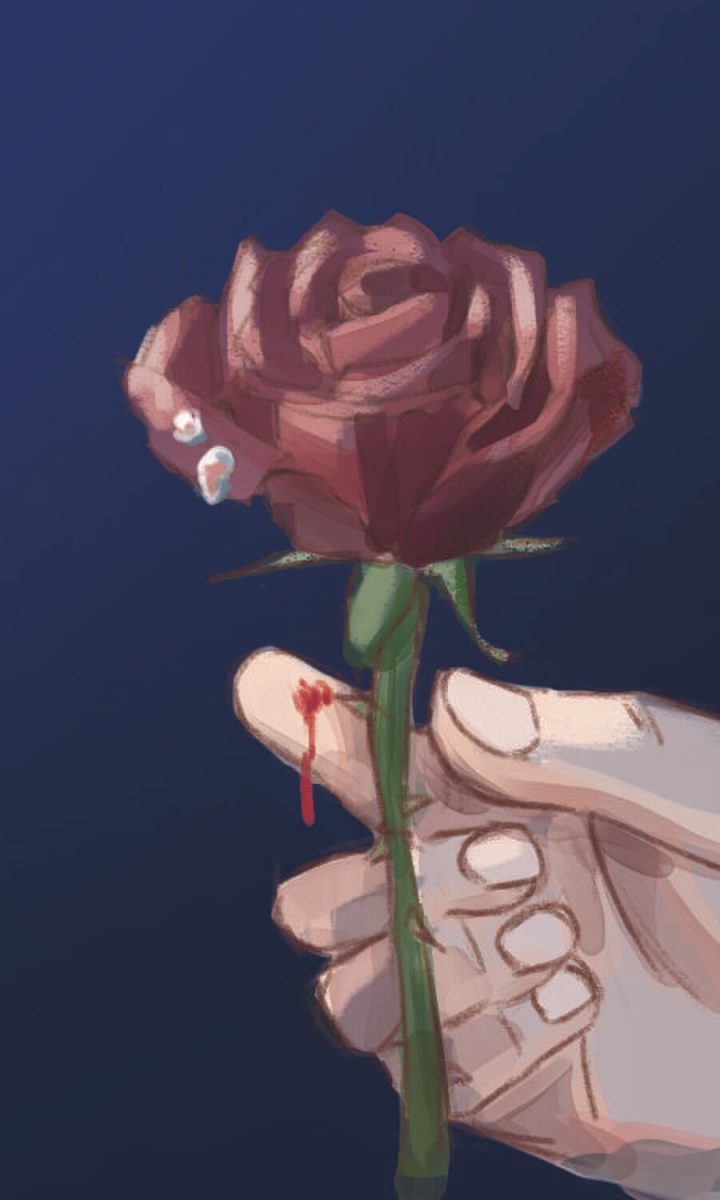Like most engineering students, my freshman year has been mostly spent obsessing over my grades. Knowing anything below a 3.75 GPA could deny me admission into competitive engineering programs, I fixated on my studies above all else. Pi bonds, derivatives and coding syntax dominated my consciousness for months at a time. In my exhaustion, I never thought much about writing and sharing my beliefs with others.
While I started writing on a whim, I am now eternally grateful that I did. The few weeks I have spent on the opinion desk at The Battalion have been a pivotal journey of self-discovery and convinced me that self-expression is an undervalued skill critical to STEM education.
I remember the process of writing my first column quite clearly. Upon meticulously constructing the article, my editor informed me the piece was lacking in “personal style.” While my first instinct was initially defensive in nature, I soon realized that the critique was quite apt. The column did communicate information and a thesis, but it failed to embody any of my own values and feelings. I had simply curated information, assembled points together and added a conclusion.
In short, I had written like an engineer: preoccupied with facts and knowledge, attentive to the world — yet profoundly disinterested in myself. I had designed an entire article but never really consulted my own intuition. It was time for me to write a piece — rather than simply construct one.
So, with my editor’s words still ringing in my ears, I set out to write my next article. Entitled, “Man vs. Memory,” the piece was a methodical analysis of how Martin Luther King Jr.’s activism has been misappropriated in modern discourse. While it certainly was carefully argued, it was — in contrast to the first — intensely passionate, provocative and much more thoughtful.
The process of writing “Man vs. Memory,” as well as subsequent articles, was both incredibly humbling and empowering. Once you lay out your beliefs and values on paper, oftentimes they can appear jumbled, muddled and even embarrassing. Sometimes this incoherency can be attributed to poor communication skills, but in many other instances it is indicative of dissonance and ignorance within the ideas themselves.
Writing, and art in general, forces you to refine your perspectives and confront their deficiencies which often go unexamined. The process can be frustrating and even demoralizing at times, but that just makes the results all the more valuable.
To my delight, “Man vs. Memory” would end up being published in a print edition of The Battalion. Seeing my work on newsstands all around campus felt intensely surreal at first. But once the sensation faded, an equally captivating feeling of pride and pure euphoria replaced it.
That day, I was able to hold in my hands a physical manifestation of my own beliefs, values and intense convictions. Behind each carefully chosen word was just a little bit of myself, and I am proud to say it showed.
Texas A&M devotes hundreds of millions of dollars to its engineering programs, but writing and publishing that piece for a self-funded paper gave me more personal satisfaction and joy than my entire first semester of engineering.
This process of refining and presenting my own beliefs has expanded both my personal and professional capacities. Since writing that piece and subsequent works, I’ve noticed I am more confident in my own skills and ability to communicate. While I certainly still have much to learn and room to grow, the progress that I make feels rewarding, and I wish the same for every other burnt-out engineering major in Aggieland.
But, being at a STEM-oriented school, most of us are often encouraged to seek understanding of the physical world, first and foremost. However, understanding yourself can oftentimes be an equally rewarding and valuable experience. I know this realization may seem cliche — perhaps blaringly obvious to many — but, to me, it wasn’t.
If there is any field that desperately needs these skills of introspection, it is STEM. As engineering, science and math students, we are often told our work will breed inherent progress. But, if the past is any indicator, our innovations will not always create a better future.
Have platforms like Facebook really shaped our world for the better? They have connected communities from all over the globe, but they have also destabilized our democracy and harmed many of the youth.
Who does our current development in the field of computing serve? While modern computers have undeniably provided a higher quality of life for individuals here in the U.S., the same demand for conflict minerals that power our phones and laptops also drive deadly conflicts abroad. Computing benefits rich countries like the U.S. often at the expense of others.
Cryptocurrencies claim to be the key to revolutionizing the world of finance, but they are often used for money laundering and contribute heavily to global warming.
What makes a better future? Who should innovation seek to serve? If we are to truly innovate, these challenging questions need answers, but existing industries and traditional STEM emphases are unequipped to give them.
The same sort of introspection writing facilitates is lacking within our field. Engineers, scientists and mathematicians, if we truly want to design a better future, we need to understand not just the physical world, but our place within it as well. It is time for STEM to facilitate more honest conversations about the role and values of technology.
So please, whether it’s writing, music or art, seek out these forms of self-expression — for reflection and self-knowledge are every bit as important and valid as calculus and physics.
Caleb Elizondo is an engineering freshman and opinion columnist for The Battalion.















